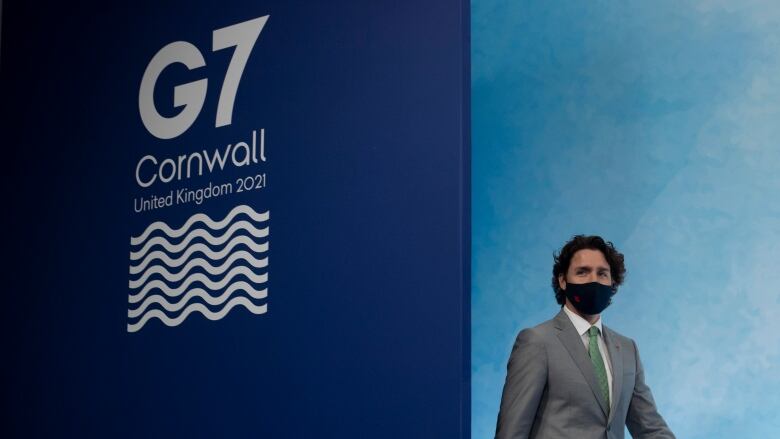G7 meeting ends with promises on COVID-19, climate, mentions of China
Canada is promising to finance or donate 100 million doses to developing countries.

The G7 Summit has wrapped up with pledges from world leaders to take urgent action on the COVID-19 pandemic, climate and possibly China.
The world's leading democracies have committed, in a 25-page communiqu, to ending the pandemic and preparing for the future, as well as supporting a green revolution while dragging their economies toward recovery.
On the issue of China, other than taking a hard line on respect for human rights, the language was decidedly and unexpectedly cool, given the rhetoric before and during the gathering in the English seaside community of Carbis Bay.
There is a reference to giving the developing world a safe, affordable infrastructure alternative to Chinese financing but it does not appear as strong as the United States might have wanted.
The Group of Seven leaders also pledged to share more coronavirus vaccines with countries in need over the next year up to two billion doses includingcontributions made since February 2021, the final communiqu said on Sunday.
Canada's share is 100 million doses, a target signalled by the Liberal government at the onset of the three-day summit.

13 million doses coming out of planned surplus
The specific breakdown of the pledge was finally released Sunday by the prime minister's office. Much of the goal 87 million doses has already been paid for through the ACT-Accelerator, the global collaborative effort to develop and share COVID-19vaccines.
Canada will donate an additional 13 million doses out of its planned surplus supply.
The majority of it (7.3 million doses) will be the Novavax vaccine, which has not yet been approved by Health Canada. There will be 4.3 million doses from the AstraZeneca-Oxford supply and 1.3 million from the Johnson & Johnson stream.
"I want to be clear," Prime Minister Justin Trudeau said. "This global commitment on vaccines is in addition to and in parallel with our vaccine rollout at home. We have millions of doses being delivered into the country each week, and every day more and more people get their first and second shots."
The World Health Organization warned on Saturday that it urgently needs 100 million doses right away to meet global demand, and further challenged G7 countries to help immunize 70 per cent of the world's population requiring roughly 11 billion doses by this time next year.
At least one humanitarian group, which has been pushing the Liberal government to take action, tentatively applauded the initiative.
"We're cautiously optimistic about Canada's G7 commitments to share surplus vaccines with low-income countries." says Michael Messenger, president of World Vision Canada.
"But we're concerned that this is too little, too late especially if this isn't new money and the vaccines don't start moving immediately."
Trudeau did say not when specifically the vaccines would start moving, nor would he throwhis full support behind the removal of patent protection, which is seen as key to ramping up supply.
A Western alternative to China's 'belt and road' initiative
Separately, the prime minister announced a doubling of Canada's climate finance contributionfrom $2.65 billion to $5.3 billion.
The money will be spent over five years, and will include increased support for climate adaptation.
He said the funding will help developing countries build domestic capacity to take climate action, build resiliency, and reduce pollution.
China was mentioned in the final communiqu on several occasions, but the language was largely neutral, reflecting a split among G7 leaders on how to deal with a more economically assertive and sometimes politically belligerent Beijing.
G7 leaders did agree onplans to transform the financing of infrastructure projects in developing countries.
Dubbed the Build Back Better for the Worldplan, it calls on them to develop high quality financing for vital infrastructure, from railways in Africa to wind farms in Asia.
The details of how it will be financed, however, have yet to be agreed upon.













_(720p).jpg)


 OFFICIAL HD MUSIC VIDEO.jpg)
.jpg)



























































































